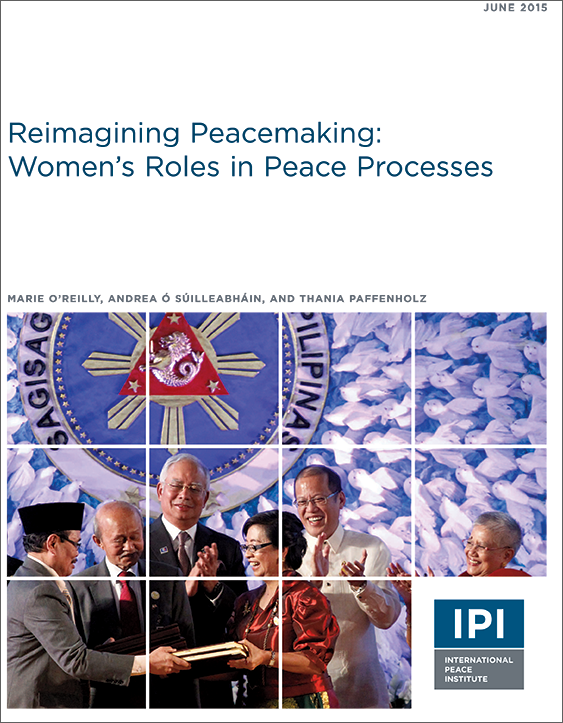 Peace and political transition processes provide key opportunities to transform institutions, structures, and relationships in societies affected by conflict or crises. Despite these wide-ranging implications, women’s participation in formal peacemaking remains low. And empirical evidence regarding the impact of women’s participation on peace has been lacking.
Peace and political transition processes provide key opportunities to transform institutions, structures, and relationships in societies affected by conflict or crises. Despite these wide-ranging implications, women’s participation in formal peacemaking remains low. And empirical evidence regarding the impact of women’s participation on peace has been lacking.
The International Peace Institute’s new report, “Reimagining Peacemaking: Women’s Roles in Peace Processes” examines the challenges and opportunities presented by women’s participation in peace and transition processes. It shares new quantitative and qualitative evidence on the impact of this participation and explores models and strategies for strengthening women’s influence throughout mediated processes.
Based on research carried out at the International Peace Institute in New York and the Graduate Institute of International and Development Studies in Geneva, the new report shows how the lag in women’s participation is linked to broader dilemmas in the peacemaking landscape today. Drawing on a comparative study of forty peace and transition processes from the Broadening Participation Project, it demonstrates that when women are able to effectively influence a peace process, a peace agreement is almost always reached and the agreement is more likely to be implemented. The report also features a case study on two distinct peace processes in the Philippines, where an unprecedented level of women’s participation offers lessons on their influence.
The authors suggest that those seeking to strengthen a peace or transition process by advancing women’s meaningful participation can leverage four key strategies:
- Build coalitions for women’s inclusion based on both normative and strategic arguments.
- Establish a credible selection process when deciding who should participate.
- Create the conditions to make women’s voices heard.
- Keep power politics and the broader public in mind throughout the process to ensure that broader participation remains a positive force for peace.







